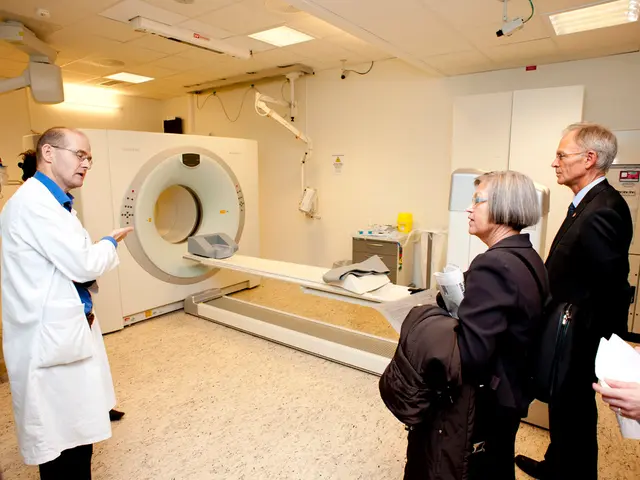Altering the Mind Might Influence the Gut: Investigating Psilocybin for IBS Treatment
Pioneering Psilocybin Research for IBS
In the fascinating world of medical breakthroughs, a groundbreaking study is exploring a new treatment option for irritable bowel syndrome (IBS) – psychedelics, specifically psilocybin. This research, led by Dr. Erin Mauney, is making waves as it marks the first time this substance is being investigated in the realm of gastroenterology, particularly for treatment-resistant IBS cases.
Key Elements of the Research Study
- Study Design: The study involves participants receiving two doses of psilocybin, accompanied by pre- and post-dosing therapy sessions. To delve deeper, the researchers are also incorporating fMRI neuroimaging to track changes in brain activity.[1][2]
- Emphasis on Gut-Brain Connection: The research aims to comprehend how psilocybin can impact interoception, a term referring to the perception of bodily and gastrointestinal sensations. By doing so, it targets the intricate brain-gut axis linked to IBS.[1]
- Potential Benefits: Psilocybin is hypothesized to exhibit anti-inflammatory effects and possibly help reset the internal communication system between the mind and body. This could be particularly advantageous for individuals with IBS who have a history of trauma or stress.[2]
The Power of Psilocybin for IBS: How it May Work
- Neurological Pathways: Psilocybin may influence neurological pathways associated with IBS, providing an alternative for those who have not responded well to traditional treatments.[1]
- Psychological Impact: By facilitating emotional release and potentially reducing stress, psilocybin could alleviate symptoms of IBS linked to psychological factors.[1][2]
- Holistic Approach: The therapy offers a comprehensive approach, tackling both psychological and physical aspects of IBS, a development viewed favorably in addressing this complex condition.[1][2]
Early Findings and Future Prospects
- Although the study is still ongoing, and preliminary results are promising, the treatment remains experimental. More extensive research is needed to grasp its efficacy and potential as a treatment option for IBS.[1][2]
Overall, this research signals a novel approach to treating IBS, shedding light on the potential of psychedelic-assisted therapy in addressing complex gut-brain disorders.
- Dr. Erin Mauney's study on psychedelics, specifically psilocybin, explores a new treatment for irritable bowel syndrome (IBS), venturing into the gastroenterology field for the first time.
- The research study incorporates fMRI neuroimaging to analyze brain activity changes, aiming to understand psilocybin's impact on interoception and the brain-gut axis linked to IBS.
- Psilocybin may influence neurological pathways associated with IBS, potentially offering an alternative for individuals who haven't responded well to traditional treatments.
- By facilitating emotional release and reducing stress, psilocybin therapy could help alleviate psychological IBS symptoms, taking a holistic approach toward addressing the complex condition.
- While the study is ongoing and preliminary results are promising, more extensive research is required to truly grasp the treatment's efficacy and potential.
- This research signifies a groundbreaking approach to treating IBS and serves as a beacon for the potential of psychedelic-assisted therapy in managing complex gut-brain disorders.
- The investigation into psilocybin's benefits for IBS patients coincides with the growing field of health-and-wellness, mental-health, and medical-conditions, particularly those involving neurological disorders and the digestive system.






